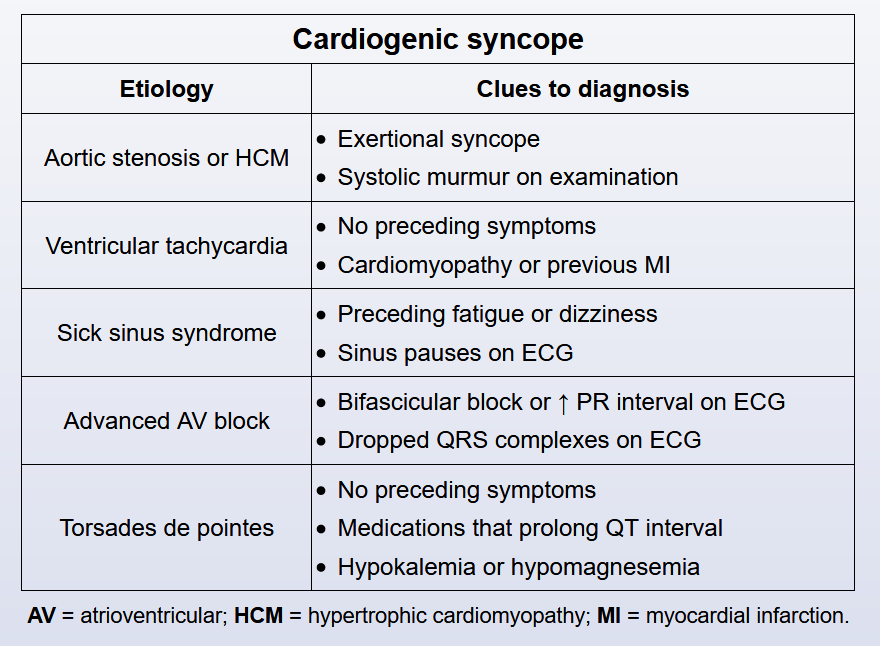syncope
- syncope: short ddx
- presyncope: very long ddx
- good history is very important
- differentiate between true syncope vs presyncope
- does this sound like arrhythmia, tachy brady syndrome
- cereral hypoperfusion
- abrupt, no prodromal, no confusion
- lights off/on
- no tired/confused/postictal
- PE: carotid sound
- ECG

This patient has most likely experienced cardiogenic syncope due to ventricular tachycardia (VT); scarring from previous myocardial infarction (evidenced by Q waves on ECG) increases the risk of ventricular arrhythmia. Syncope due to VT usually has no warning symptoms (other than palpitations in some patients). The arrhythmia spontaneously terminates within a few minutes, resulting in restoration of cardiac output and rapid patient recovery with no residual symptoms.